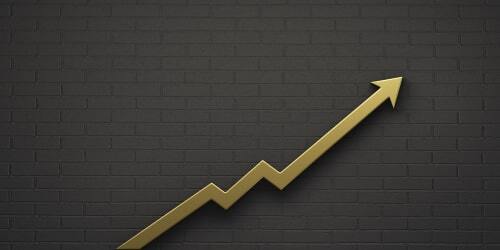

Gold has a chance to break above its key resistance level of $1,750 an ounce this week. Here's what investors need to watch, according to analysts.
The yellow metal had a very decent start to the second quarter, with prices up around 1% on the week. June Comex gold futures last traded at $1,746 an ounce. Earlier in the week, the precious metal was up almost $50 since last Friday as it traded close to the $1,760 an ounce level.
After being bombarded with the Federal Reserve news coverage this week, markets seem to understand that the Fed will be waiting until next year to be proven wrong on its transitory inflation stance, OANDA senior market analyst Edward Moya told Kitco News. And this shift in sentiment could cap the rapid rise in the 10-year U.S. Treasury yields.
"What was different this week was that the Fed seems convinced that we will have to wait until next year to be proven wrong on inflation. Prior to this, markets were trying to hedge as far as this inflation risk. Now, this will get pushed much further down the road," Moya said.
The change in sentiment could be supportive for gold going forward, especially ahead of the U.S. inflation data on Tuesday, which could also surge after a surprisingly strong PPI data on Friday.
"U.S. PPI jumped 1% month-on-month to leave the annual headline rate at 4.2% – the highest since September 2011. This was well ahead of the consensus forecast of 0.5%," said ING chief international economist James Knightley. "This will add to the upside risks for CPI."
A stronger-than-expected CPI number could trigger another rally in yields. But if gold can hold around the $1,750 level, then there is potential for the yellow metal to recover to $1,800 an ounce, analysts told Kitco News.
"If we do get hotter inflation readings next week, it could be a catalyst for higher Treasury yields, which would be bad for gold. But once we pass that event and if gold is still near $1,750, that would be a green light for prices to rise higher. There could be more upside potential for gold after the CPI data," Moya said.
The good news for gold is that it might have already hit its lows during the first quarter of 2021.
"Looks like the bottom appears to be in place for gold. The Fed removed the big risk as far as yields surging. We are going to see an environment where gold could continue to rise," Moya said. "And even though we might not see the August record highs, gold could make a move towards $2,000 again."
It is still too early to decide how the economic recovery will evolve, Moya said. "There are still too many risks in place. Plus, once the economic recovery picks up in the rest of the world, we'll see significant dollar weakness."
The technical outlook is showing a double-bottom in gold, said Walsh Trading co-director Sean Lusk. "The low from March 31 and March 8 form a classic double bottom. The $1,759 level is providing a bit of resistance. If gold breaks it, the precious metal can go to $1,800," he said.
Other supportive drivers for gold are stronger physical demand and renewed central bank gold buying, strategists at TD Securities said.
"Strong Chinese and Indian demand along with renewed interest from central banks have all delivered sufficient support for the yellow metal to hold onto its pandemic-era uptrend," the strategist said. "The breadth of central banks purchasing gold could potentially rise substantially considering the massive increase in sovereign debt and the rapid pace of money supply growth in reserve currency countries. A sustained rise in official interest could provide further support for the yellow metal."
However, new record highs are unlikely for gold until safe-haven demand continues to go towards cryptos, Moya noted. "There has been some diversification away from gold. Crypto madness didn't blow up yet. If the crypto bubble pops, it is a game-changer for gold. But that is difficult to gauge. The $2,250 level could be realistic for gold if we were to see the crypto bubble burst," he said.
Blue Line Futures chief market strategist Phillip Streible was more bearish, noting that gold cannot do well in the current environment defined by fast-paced growth.
"Gold only does well when you have rising inflation and slower growth. We are not in that environment," Streible said. "If gold falls below $1,700 an ounce, we are buyers at $1,680," he said.
The only wildcard that could push gold higher right now is a flare-up in geopolitical tensions, according to Streible.
Data to watch
Tuesday's CPI number is forecasted to jump to 2.5% year-on-year in March. Over the summer, ING projects inflation to get close to 4% in light of a stimulus-fuelled economy.
"Inflation could stay closer to 3% for much of the next couple of years and in an environment of strong growth and rapid job creation it adds to our sense that risks are increasingly skewed towards a late 2022 rate hike rather than 2024 as the Fed currently favors," Knightley said.
Other data to watch next week include U.S. jobless claims, retail sales, NY Empire State manufacturing index, Philadelphia Fed manufacturing index, and industrial production, all scheduled to be released on Thursday.
Also, markets will be paying close attention to Friday's building permits and housing starts.
By Anna Golubova
For Kitco News
Kinesis Money Sytem - Manages your Gold and Silver - Find out More
